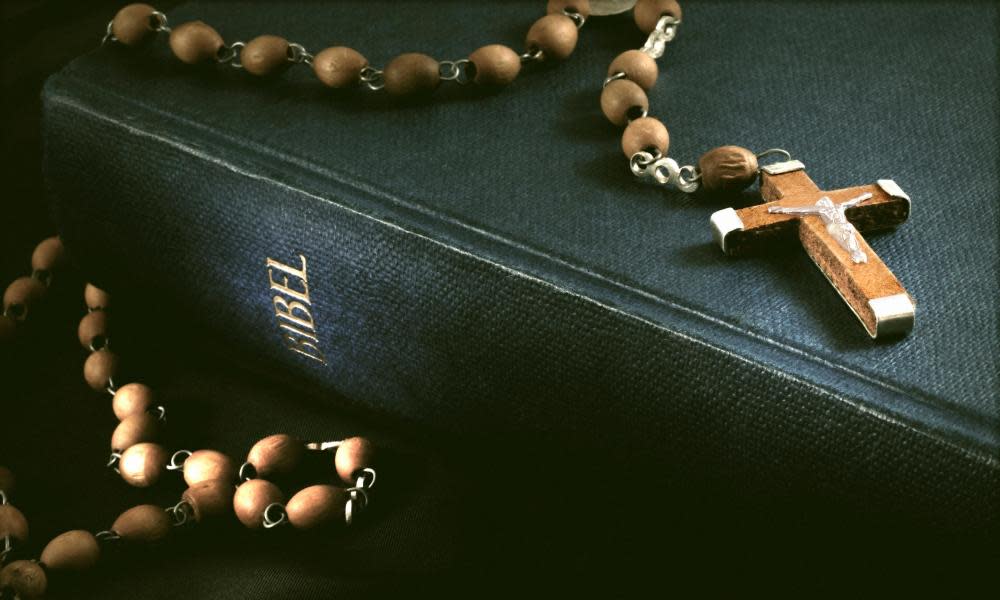Women sue Dutch Catholic order over forced labour claims

Nineteen women are suing a Dutch monastery and its Catholic order over claims they were subjected to forced labour and abuse by nuns between 1951 and 1979 during periods of virtual imprisonment as children or young adults.
The case against the Sisters of the Good Shepherd, which operates in 70 countries, concerns the treatment of women, aged 11 to 21 at the time, who had been placed in the nuns’ care by the courts or at the request of their parents or guardians.
The women, who are now in their 70s and 80s, say they were forced to work in laundries and sewing and ironing rooms under threat of punishment, against their will and without wages, for the order or for the benefit of outside organisations including the Dutch royal house.
Joke de Smit, 74, who stayed in Good Shepherd institutions in Bloemendaal and Zoeterwoude for four years from the age of 15, told the Guardian: “They ruined my life. That needs some form of reparation. That’s why we will go to court.”
When De Smit obtained her child protection file as an adult, the nuns had written of her that she had a “nice little face”. They added: “It is a pity that she is rotten through and through.”
Tiny Holstein-Fiolet, 85, who was in the care of the nuns between 1951 and 1952, remembers as a 20-year-old being ordered to look at the ceiling and say prayers while showering as it was deemed unchaste to look at her own body or that of others.
She said: “I need recognition of all that was done to me. Finally we’re able to tell our story, that’s why we go to court, to tell our story. People need to know the truth, that we are not making it all up.”
At least 15,000 girls and young women, accused of falling into “licentiousness”, were held in confinement and forced to work in the laundry and sewing rooms of the Catholic order of the Sisters of the Good Shepherd in the Netherlands between 1860 and the early 1980s.
Similar claims of abuse have been made of monasteries run by the same order in the US, Australia and Ireland, where they were also known as the Magdalene laundries.
An additional claimant in the Netherlands to the 19 women is the Clara Wichman Foundation, a non-profit organisation, which is acting on behalf of all of those not represented.
The women under the care of the nuns in the Netherlands were said to have been instilled with the belief that they were “inferior”, “imperfect”, and “incorrigible”. They have said they did not receive a proper education and were beaten.
Beyond delivering corporal punishment, the nuns were not permitted to touch those in their care, who were said to have been denied medical care and the basic requirements of “personal hygiene, privacy, warmth and tranquility”.
Only one of the 19 women was aware of the reason behind her being sent to the monastery. In that case it was because of the “unsustainable” financial situation at her mother’s home.
A Dutch government investigation report published in 2019 concluded that the situation in the monasteries amounted to forced labour. Each woman was offered €5,000 by the state for its role in placing the girls in seven Dutch institutions run by the order.
The Sisters of the Good Shepherd has apologised to the claimants, accepting that the circumstances under which the girls were received had been “inappropriate”.
The sisters dispute the facts as presented by plaintiffs and disclaims liability, citing the statute of limitations.
The claimants’ lawyers, Liesbeth Zegveld and Brechtje Vossenberg, said their clients wanted recognition of the unlawfulness of their treatment. “The superior attitude the Sisters of the Good Shepherd still take sharply contrasts the continual suffering of the women,” Zegveld said.
“Finally these women have the courage to go to court and demand recognition of the irreparable damage done to them in their youth.”


